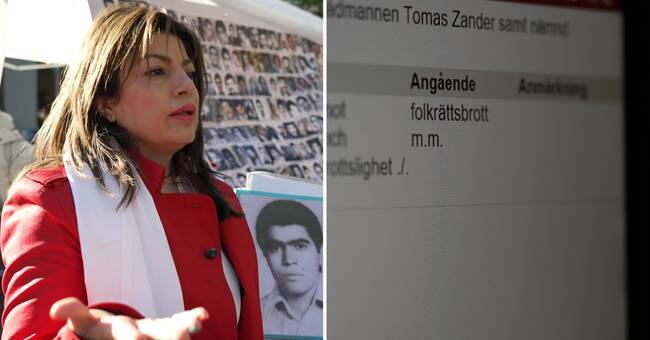She was 19 the last time she saw her brother Bijan.
He had been arrested when he was 23 years old because he was a left-wing sympathizer and had participated in the revolution, says Laleh Bazargan.
- They were children of the revolution.
They first revolted against the tyranny of the shah and then against religious tyranny, says Laleh Bazargan, referring to all the political prisoners executed in the summer of 1988, such as her brother.
No answers after 30 years
The prisoners who were executed left behind even more relatives who still today wonder what happened to them.
The trial is now underway in Stockholm District Court, the first of its kind to prosecute someone for involvement in the mass executions during the so-called "black summer" in Iran.
Laleh Bazargan says that it was in the middle of the summer of 1988 that the family was suddenly banned from visiting the prison.
It would be until the autumn before they found out that the then 28-year-old Bijan was no longer alive.
- My father asked why they had killed him.
Then they replied that he, my brother, had been an apostate, that he was not a Muslim.
And that he will end up in hell and that we will not get his dead body, says Laleh Bazargan.
Symbolic burial site
She and several other relatives are standing outside the district court in Stockholm this week.
Everyone shares similar stories.
The group has posted pictures of several women.
They are the mothers, sisters and daughters of those who suddenly disappeared from the prisons where they sat and served their sentences.
They call themselves "Khavaran's mothers".
Khavaran is a cemetery south of Tehran.
This place has become symbolic for the relatives because they suspect that many of the prisoners from the summer of 1988 were buried right there.
- We are not allowed to set up any tombstones, plant trees or anything.
But every Friday since that summer, families have come here and mourned, says Laleh Bazargan.
Laleh Bazargan has gone to room 37 in Stockholm District Court as often as she can.
When she sits in the courtroom, she brings with her a collage of pictures of her brother.
Today she carries a folder with her.
It contains Bijan's death certificate.
- You see, here they have drawn a line at the cause of death.
Photo: SVT
"Fought for over 33 years"
The trial is set to continue until next spring.
The man has always denied the crimes he is accused of, which is both murder and a serious violation of international law.
For many relatives, this trial represents a chance for a small piece of the puzzle in what has happened to their loved ones.
- We have fought for over 33 years for this to end and for us to be able to move forward in our grief, says Lalez Bazargan.

